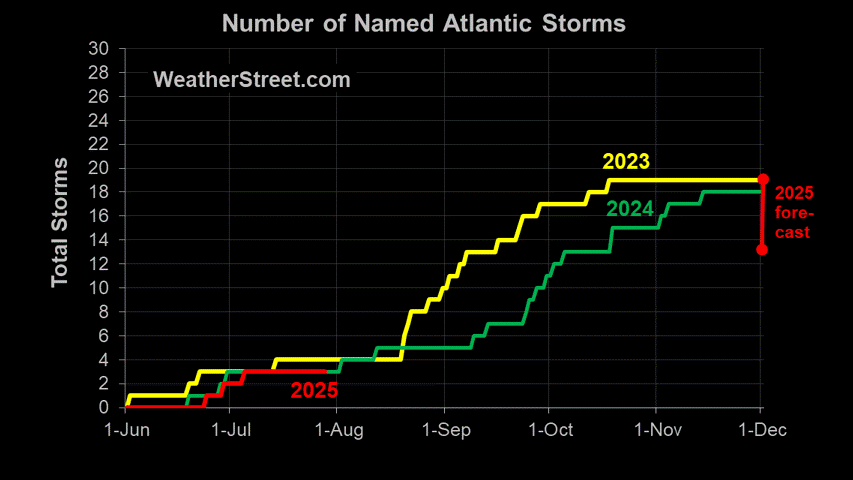2010 Hurricane Preparedness Week
 Hurricane season begins in the Atlantic Basin in one week. June 1st through November 30th marks the dates for tropical weather formation in teh Atlantic Ocean, Gulf of Mexico and Caribbean Sea.
Hurricane season begins in the Atlantic Basin in one week. June 1st through November 30th marks the dates for tropical weather formation in teh Atlantic Ocean, Gulf of Mexico and Caribbean Sea.This year is expected to be stronger than usual with a predicted 15 named storms including 7 - 8 hurricanes and as many as 4 major hurricanes (Sources: AccuWeather, University of Colorado and Tropical Storm Risk).
The key driver for the higher forecast is the loss of El Nino which caused the low level of tropical activity last year. Sea surface temperatures were high enough for storms to form, but they were frequently torn apart by the strong wind shear in the Atlantic that seems to accompany an El Nino in the Pacific.
This year the water temperatures are expected to be just as warm. Additionally, there have been discussions that La Nina is likely to form. la Nina is the antithesis of El Nino, cooler than normal water temperatures in the eastern Pacific. During a La Nina year, hurricane activity is typically very high.
This is the week to make sure that you preparations are in order:
1. Do you have an evacuation plan if you live near the coast?
2. Do you know when you will leave and where you will stay?
Remember - Run from the water, hide from the wind
3. Do you have access to extra food or water if you do decide to stay?
4. If you are going to leave, is your gas tank filled up?
Some people may scoff at the predictions of an active tropical season. You must remember that the forecast if for the entire Atlantic Basin. Many storms form and stay out to sea never making landfall. We have to remember that such a scenario is a GOOD THING! One landfalling hurricane can create major havoc resulting in the loss of life, property, wealth and have a significant impact that lasts for many years.
If you don't want to prepare, just think of all the lives lost from Katrina, Rita, Wilma and Ike. Many of the deaths that did occur were unnecessary and were simply the result of a lack of preparation and awareness.
National Hurricane Preparedness Week 2010 (MyFox Houston)
The National Hurricane Center will be doing a couple new things in 2010.
Partly because of the combination of low winds and high storm surge from Hurricane Ike in 2008, the National Hurricane Center has made adjustments to the Saffir-Simpson scale. It will now be called the Saffir-Simpson Hurricane Wind Scale and will maintain the same wind speed ranges as the original Saffir-Simpson Scale for each of the five hurricane categories, but no longer ties specific storm surge and flooding effects to each category.
Another change this season concerns the lead times that the National Hurricane Center uses when issuing watches and warnings for coastlines. Watches and warnings for tropical storms and hurricanes will be issued 12 hours earlier than in previous years.
Tropical storm watches will be issued when tropical storm conditions are possible along the coast within 48 hours. Tropical storm warnings will be issued when those conditions are expected within 36 hours. Similar increases in lead time will apply to hurricane watches and warnings.
More advanced warning is good so that people can get their preparations in order. Hurricanes are like the monster in a horror movie. They slowly hobble across the field (ocean or gulf) towards their victims creeping up foot by foot until they are upon them. As we all yell at the screen "Run Away", for coastal residents that is the correct action.
Once the order is given - GET OUT! Don't hang around because your family has lived here for centuries or think you can protect your property from looters, just git! Take the few things you truly cannot replace and leave. You can deal with the insurance company later to take care of the rest.
Remember STUFF is only STUFF. Stuff is never worth a life.









<< Home